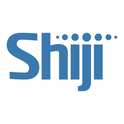

It usually starts with a simple fix. One team wants better upsell options, so a new CRM is added. Another needs richer analytics, so in comes a reporting tool. The spa needs its own booking interface. The restaurant team demands a POS that talks to the kitchen the way they like. All good intentions. Fast forward 18 months, and what should be a well-oiled operation is now a patchwork of portals, dashboards, and tabs that staff must juggle, each with its own login, interface, quirks, and learning curve. Welcome to the fragmented dashboard dilemma.The Real Cost of Context Switching
In hospitality, seconds matter. Every click, every delay, every “hang on while I check that in another system” moment can compound. While each tool might solve a specific need, the cumulative friction of switching between them dozens of times per shift is a hidden productivity killer.
It’s not just the time lost, though that alone is significant. It’s the cognitive load on your staff. Managing three or four interfaces just to check a guest profile, verify room readiness, and process a payment? That’s not operational efficiency.
This kind of tech sprawl often happens quietly. Tools are layered on over time. But the result is longer training times, more mistakes, slower service, and rising IT overhead.
Sure, many vendors now offer APIs and integrations. But here’s the reality: glued-together systems still feel like glued-together systems. A CRM piped into a PMS still means managing sync issues. A payment system bolted onto a booking engine doesn’t make the transaction feel seamless.
And every integration becomes another potential point of failure.
True unification is different. It’s not about making multiple tools talk to each other. It’s about building them to speak the same language from the ground up. Shared data models, real-time updates, role-based dashboards, and all of it designed to flow, not just connect. That’s when you start to see a real impact on service quality.
Ask any hotel IT manager, and they'll tell you: each additional dashboard and system brings its own compliance burden. With data sovereignty laws evolving rapidly and cyber threats growing more sophisticated, tracking where sensitive guest data flows is exponentially harder when it’s dispersed across siloed systems.
Legacy systems often lack robust encryption. Some third-party tools don’t support local data residency. Meanwhile, security audits become nightmares when access rights have to be mapped across eight different tools.
A unified platform simplifies this drastically. One security policy, one data governance framework, and one place to enforce access control and audit trails.
There’s a less talked-about advantage to simplifying your tech stack: it opens the door to stronger, more strategic partnerships. When you consolidate across fewer vendors (ideally with one platform that spans multiple parts of your operation) you stop scattering your influence and start building leverage.
The more integrated your relationship with a platform provider, the deeper their understanding of your business becomes. Your goals are seen in context, your feedback carries more weight, and your pain points don’t need explaining every time.
This kind of alignment leads to something rare in our industry: true collaboration. Support improves, and innovation becomes a shared project. And because your platform partner sees more of your operation, they can spot opportunities before you even ask.
Guests may never see the backend systems your staff uses, but they feel the difference. A front desk agent fumbling between tabs while checking in a loyalty guest? A server unable to verify a room charge because the POS doesn’t sync in real time? Both are friction points that can undermine your brand.
To be clear, specialized functions will always exist in hospitality, and we should embrace innovation wherever it drives value. But it’s time to hold our systems to a higher standard: less fragmentation, more fluidity.
At Shiji, we’re seeing forward-thinking hoteliers shift away from fragmented stacks and toward unified platforms, not just to reduce cost, but to regain clarity. With one platform, they’re consolidating guest profiles, accelerating service, tightening compliance, and simplifying support.
It’s time to simplify, consolidate, and elevate hotel operations because hospitality should feel seamless. Not just for guests, but for the teams who serve them every day.
 Getting Technical with What a Centralized Hotel Platform Can Enable | By Adam Mogelonsky Getting Technical with What a Centralized Hotel Platform Can Enable | By Adam MogelonskyTuesday 5 August 2025 |
 AI Alone Won’t Save You: Why Hospitality Tech Still Needs Structure | By Steven Hopkinson AI Alone Won’t Save You: Why Hospitality Tech Still Needs Structure | By Steven HopkinsonThursday 24 July 2025 |
 From Crown Jewels to Compliance: 5 Ways to Buid a Cyber‑Resilient Hotel Tech Stack | By Aleksander Ludynia From Crown Jewels to Compliance: 5 Ways to Buid a Cyber‑Resilient Hotel Tech Stack | By Aleksander LudyniaTuesday 15 July 2025 |
 Connecting the Dots: Shiji’s Approach to Seamless Data | By Adam Mogelonsky Connecting the Dots: Shiji’s Approach to Seamless Data | By Adam MogelonskyThursday 10 July 2025 |
 Data Sovereignty Is the New Hospitality Imperative: Why Hotels Need to Rethink Their Tech Stack Now | By Aleksander Ludynia Data Sovereignty Is the New Hospitality Imperative: Why Hotels Need to Rethink Their Tech Stack Now | By Aleksander LudyniaTuesday 8 July 2025 |
 Seamless by Design: Why Unified Hotel Tech is No Longer Optional Seamless by Design: Why Unified Hotel Tech is No Longer OptionalThursday 3 July 2025 |
 From Guests to Data to Dollars: 5 Ways Unified Hotel Tech Boosts Revenue and Loyalty | By Wolfgang Emperger From Guests to Data to Dollars: 5 Ways Unified Hotel Tech Boosts Revenue and Loyalty | By Wolfgang EmpergerTuesday 1 July 2025 |
 Forget Best-of-Breed: Why All-in-One Systems Are the Future of Hotel Technology | By Wolfgang Emperger Forget Best-of-Breed: Why All-in-One Systems Are the Future of Hotel Technology | By Wolfgang EmpergerWednesday 25 June 2025 |
 Building Clean Data Foundations for AI in Hospitality | By Henri Roelings Building Clean Data Foundations for AI in Hospitality | By Henri RoelingsTuesday 9 September 2025 |
 Hotel Cybersecurity in 2025 Emphasizes the Human Stack Hotel Cybersecurity in 2025 Emphasizes the Human StackMonday 1 September 2025 |
 Reframing Data Security and Sovereignty as a Hotel Team and Guest Benefit | By Adam Mogelonsky Reframing Data Security and Sovereignty as a Hotel Team and Guest Benefit | By Adam MogelonskyMonday 25 August 2025 |
 The Real Power of a Centralized, Real-Time Guest Profile | By Henri Roelings The Real Power of a Centralized, Real-Time Guest Profile | By Henri RoelingsFriday 15 August 2025 |
 Too Many Systems, Too Little Time: How Hotels Can Simplify Tech and Empower Teams | By Michael Heinze Too Many Systems, Too Little Time: How Hotels Can Simplify Tech and Empower Teams | By Michael HeinzeTuesday 12 August 2025 |
Organization
Shiji Group
www.shijigroup.com/
Saarbrücker Str. 36A
Berlin, 10405
Germany
Recent News
 Emotional Luxury Hospitality: Jesús Terrés on Travel, Meaning, and the Power of Details Emotional Luxury Hospitality: Jesús Terrés on Travel, Meaning, and the Power of Details |
 Shiji Hits Major Milestone with 400th Hyatt Infrasys POS and Full Digital F&B Ecosystem Install Shiji Hits Major Milestone with 400th Hyatt Infrasys POS and Full Digital F&B Ecosystem Install |
 2025 Guest Experience: How Hotels Are Winning Satisfaction in a Year of Record Demand | By Bruno Saragat 2025 Guest Experience: How Hotels Are Winning Satisfaction in a Year of Record Demand | By Bruno Saragat |